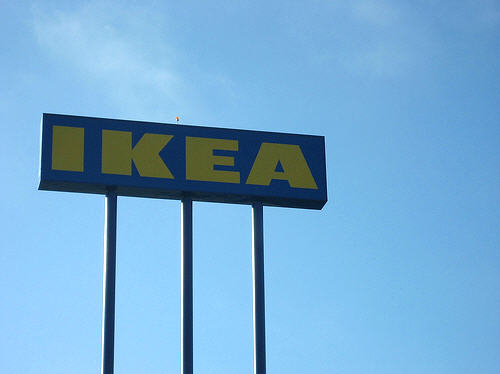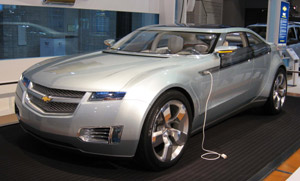This week, GM announced it plans to begin testing its plug-in, rechargeable car, the Chevrolet Volt, in the spring of next year. Says GM bigwig Bob Lutz, “We’ll have some on the road for testing next spring, and we should have the Volt in production by the end of 2010.” The secret ingredient to the Volt’s claim of 40-miles-per-charge is its “next-generation” lithium-ion battery, which is designed to last for 10 years, and which Lutz says will be ready by this October. Can we get one for our laptops?
environmental

Plug-In Hybrids Could Help Cut Emissions
Plug-In Hybrids are not yet available, but new research says that when they are their use could slash emissions by, well… a lot. Theoretically, plug-in hybrids could be driven up to 40 miles a day on electricity alone. More good news: using electricity for fuel wouldn’t harm the power grid and the equivalent cost would be about $1 a gallon. But can car manufacturers make the cars cheap enough and the electric company make power clean enough to sell the idea to the American public?
The upbeat news for plug-ins, seen by many as the next big step in environmentally friendly automotive technology, came with two caveats. Achieving the maximum air quality improvements would require a significant cut in the pollution produced by electric utilities. It’s also dependent on large-scale adoption of plug-in hybrids, which may not be in new-car showrooms for several years.

IKEA To Charge $.05 for Plastic Bags In Effort To Reduce Consumption
Proceeds of up to $1.75 million (that’s a whole lot of bags) from the bag campaign will go to American Forests, the nation’s oldest non-profit citizens conservation organization, to plant trees to restore forests and offset CO2 emissions,..IKEA projects that the number of plastic bags used by their U.S. customers will be reduced by at least 50% from 70 million to 35 million in the first year. This program was launched in IKEA stores in the UK in late Spring 2006, and reduction has been an impressive 95 percent.
The program was very popular in the UK, and we love those IKEA shopping bags, so we’re all for it. We imagine, however, that a lot of people won’t be.—MEGHANN MARCO


